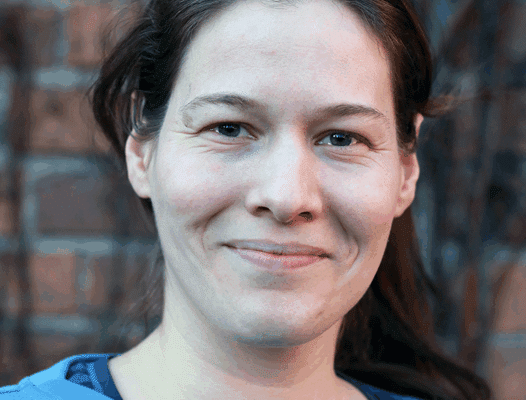- Science and Society
- Series
Sociologist and demographer Laurence Charton launches the first podcast of the Récits de femmes series, which questions the role of women in society

The podcast focuses on the experiences, challenges, and resilience of these childless women and questions their role in our society.
The podcast, Récits de femmes sans enfant par circonstances de la vie [Stories of childless women due to life circumstances], addresses an often misunderstood reality: that of women whom, involuntarily, do not have children.
Wanting a child and not having one is far from uncommon. Today in Quebec, nearly one in four women have not had a child. While some are childfree by choice, many have confessed that they cannot have children due to life circumstances. What are these life circumstances? How do these women experience the absence of a child they want desperately? How do they cope with being childless?
This first podcast in the Récits de femmes series, created and presented by Urbanisation Culture Société Research Centre professor Laurence Charton, attempts to answer these questions. It focuses on the experiences, challenges, and resilience of these childless women and questions their role in our society.
Listen to the podcast (available in French only).
Childless, but not speechless
By questioning why some women have not had children and observing how they deal with this absence, we can better understand what makes people want a child. Identifying the conditions that may prevent women from wanting to create a family or have a child lets us understand the outcomes.
In this first episode, the podcast shares two life stories that, while not universal, represent the experiences shared by the women the researcher met. This podcast is part of her research project, funded by the Social Sciences and Humanities Research Council (SSHRC), entitled “Avoir ou non un enfant au Québec : condition, moment, et motivation” [To have a child or not in Quebec: condition, timing, and desire].
“There isn’t much conversation around people without children. Society treats them as unstable, selfish, or simply abnormal. Childless women struggle to find their place in society, and experience a kind of invisibility and social guilt.”
Laurence Charton
Catherine-Emmanuelle Delisle is an elementary school teacher and creator of the blog Femme sans enfant. In her teens, she was diagnosed with a condition that left her infertile. She shares part of her story.
“I don’t think people are aware we feel left out. I’ll take a concrete example from my work life: I was in the teacher’s lounge at school and the women were all talking about their children, daycare, and time management. Obviously, I couldn’t contribute to those discussions. So I stayed silent. And you don’t notice the people who stay silent.”
Conversations where you don’t have a voice can be very isolating. Especially in a society where family is seen as a core part of your personal journey, as it is in Quebec. Even today, the role of “mother” and the role of “woman” can be inseparable for many people.
“I think that our experience falls into most people’s blind spot, because they’re just not aware of this reality. But I also think that when you’re suffering from your childlessness, it’s very hard to exist publicly with that suffering. You have to find the right time to talk about it and try to carve out a place for yourself.”
Catherine-Emmanuelle Delisle
Childfree or childless: not always a choice
Not having a child, whether by choice or not, is a sensitive subject, the researcher notes. It can be hard to talk about, even in romantic relationships, where partners have to reconcile their desire for each other and their desire to have a family. Beyond medical reasons, some people may not want children because they haven’t met the right person at the right time, aren’t the right age, or are waiting for the perfect circumstances to become a parent.
“There is an important distinction to be made between being childfree—choosing not to have children—and being childless, or unable to have children. The latter is something that happens to you,” explains Laurence Charton.
“I thought it was interesting to explore the subject further and try to understand the process,” she continues. “There are many reasons a person can be childless, and they aren’t all medical.”
Laurence Charton is director of the international journal Enfances Familles Générations. She is also co-director of the RISUQ Chaire Périnatalité et parentalité(perinatal and parenthood research chair) and a member of research partnerships Familles en mouvance and Séparation parentale, recomposition familiale (“Families in Transition” and “Parental Separation and Step-Families,” respectively).
About the podcast
Production: Marie-Hélène Frenette-Assad
Editing and music: Roxanne Potvin



